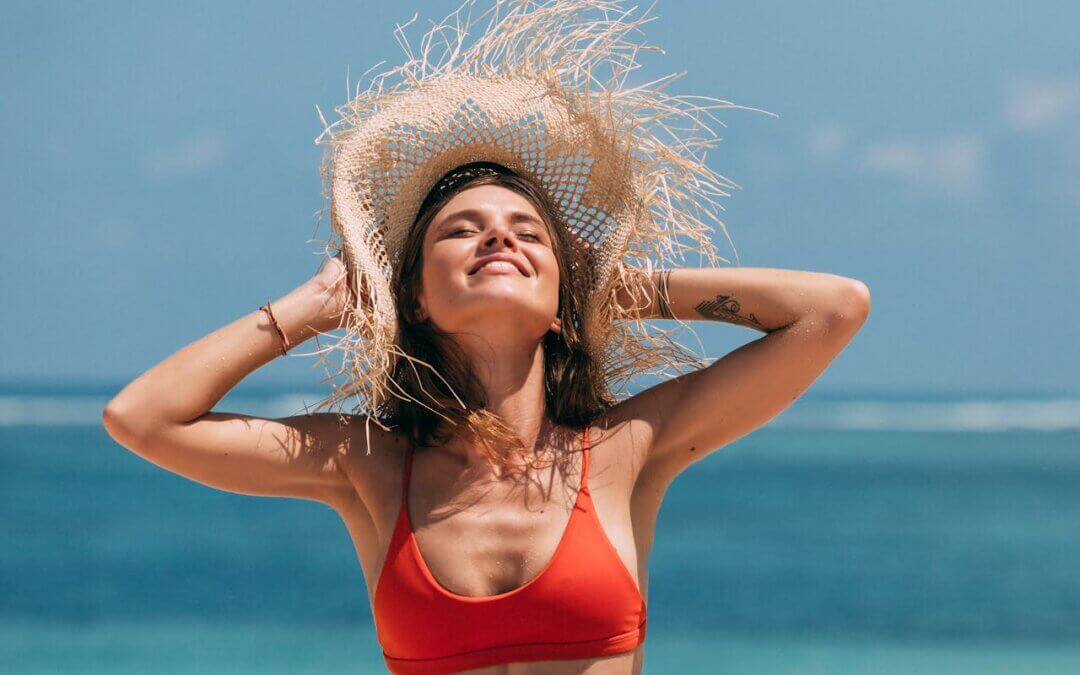
by Mia Barnes
6 Surprising Ways the Sun Can Affect Your Skin — and What to Do About It
Do you slather on sunscreen each day? You should, for more reasons than reducing your cancer risk. The sun can affect your skin in surprising ways. Fortunately, protecting yourself is as simple as covering up and choosing the right SPF. Why should you bother? Here are six reasons you should treat safeguarding your skin from the sun seriously.
1. Photoaging and Premature Aging
It’s no secret that too much time in the sun can result in the appearance of fine lines and wrinkles and an uneven complexion. The term “photoaging” refers to the cumulative effects of radiation from the sun or artificial ultraviolet (UV) sources. It results in collagen breakdown, which causes deep wrinkles, sagging skin, “hollow” cheeks and other signs of aging older individuals experience.
2. Hyperpigmentation and Other Skin Conditions
Hyperpigmentation refers to the appearance of blotchy or mottled skin with alternating patches of light and dark. This condition can have various causes, and sun damage is one of the most common — hyperpigmentation spots are also sometimes called “sun spots.”
Aside from hyperpigmentation, sun exposure and excessive sun damage can lead to vitiligo and mole growth.
3. Eye Damage
You should wear sunglasses as well as sunscreen when in the sun. The skin around your eyes is more prone to damage, and UV light exposure can also damage your vision. For example, women account for 63% of age-related macular degeneration cases, and failing to protect your eyes is one of the biggest and most preventable risk factors.
4. Sunburn
Sunburn doesn’t feel good and spurs premature aging, photoaging and hyperpigmentation while upping your chances of disease. Having five or more severe sunburns throughout your life doubles your skin cancer risk.
Keep yourself safe by slathering on sunscreen and pay attention to the type and when you apply it. Sunscreen can take up to 15 minutes to absorb into the skin, so make sure you apply it a bit before you head out for the day.
5. Skin Dehydration
Dehydrated skin looks flaky and ashy, making you look older and more tired. Furthermore, you sweat more in the sun, accelerating moisture loss.
Keeping yourself hydrated is key. While the general rule is to divide your weight in half and consume that many ounces of water per day, you may need more if you spend a lot of time outdoors.
6. Heat Rash
Those little angry red bumps on your chin might not be pimples. Heat rash occurs when your eccrine glands, which let sweat escape from your skin’s surface, become blocked. The result is tiny, red, inflamed bumps that can itch like crazy.
Treatment includes cooling yourself down in a shower or pool and applying topical anti-itch creams. As heat rash often occurs where fabric meets your skin, opt for breathable cotton over synthetics that prevent airflow.
Is the Sun Ever Good for Your Skin?
In some cases, the sun can be good for your skin. For example, mild exposure prompts your body to produce natural vitamin D, which boosts your mood and improves immune function.
Furthermore, some people with autoimmune diseases do better with mild sun exposure. The trick is finding the right amount of exposure to improve symptoms without prompting a severe flare-up.
How the Sun Affects Your Skin
The sun affects your skin in multiple ways. Understanding the risks prompts you to take simple proactive steps, such as applying sunscreen and wearing other forms of sun gear. Protect yourself before you venture out and enjoy a healthier, more glowing complexion for life.
Cover Photo by Mikhail Nilov
Inside photo by Lukas Rychvalsky







by Mia Barnes
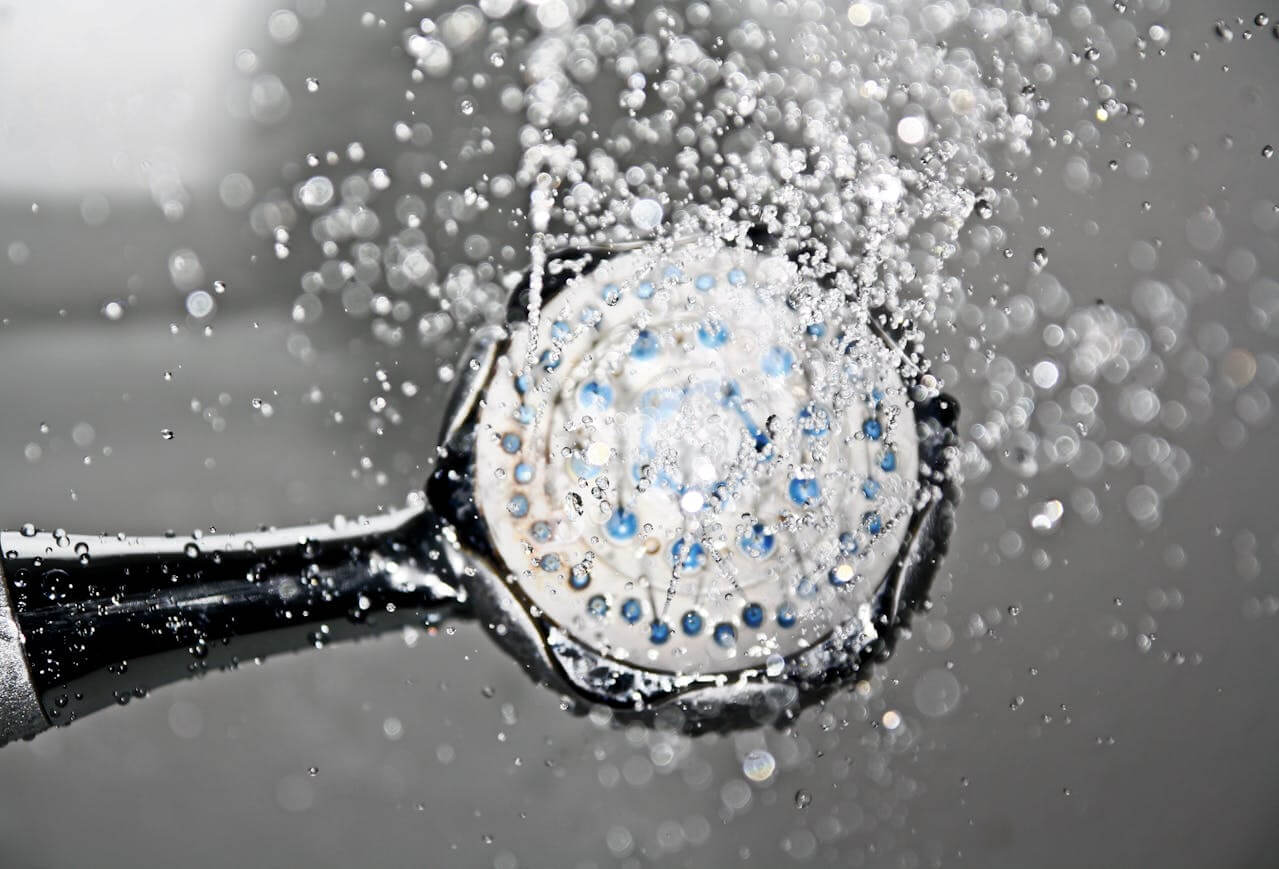
Understanding the Impact of Water Temperature on Skin Wellness
Your skin is your body’s largest organ, and it isn’t only for looking pretty. It serves several important functions, including maintaining your body heat. Furthermore, as solid as it seems, it contains plenty of fluid and the temperature of surrounding water can affect the wellness of your complexion.
Is cold or hot water best for glowing skin? Are there specific applications for each? How do hot tubs and swimming in cold water impact your complexion? Here’s how to look your best while protecting your health by understanding the impact of the water temperature on your skin’s wellness.
How Hot Water Affects Your Skin
Have you ever heard that you should avoid hot showers? Maybe even from a doctor if you sought a consultation for skin irritation? That’s because hot water affects your skin’s barrier, evaporating vital oils and contributing to excessive dryness.
Washing in cooler temperatures has additional benefits beyond protecting your skin’s moisture barrier. Only 0.5% of the Earth’s water is useable, and long hot showers are not always the most sustainable option. Waiting for the water to reach scalding temps contributes to waste, and cooler showers often result in shorter showers altogether. In addition, cool water also stimulates certain body chemicals that may boost your mental health and immune system.
That’s not to say that hot water doesn’t have its uses. Boiling water can purify it and even remove up to 80% of microplastics, which have unknown effects on human health. However, it’s not helpful for your skin, as temperatures high enough to kill microbes would also burn you. It also doesn’t open your pores — they aren’t connected to muscles, and lukewarm or cool water cleans as effectively.
Furthermore, while stripping oils from acne-prone skin sounds like a plus, it’s not. Your body constantly strives for homeostasis or balance and only produces more oil to compensate. As a result, you could end up with worse breakouts — stick to a twice-a-day scrub routine.
How Cool Water Affects Your Skin
If hot water is a no-go, what about cool? You already know that taking a cold shower has some health benefits, but can it improve your complexion? It’s possible.
Cold water stimulates circulation. Your blood carries vital oxygen and other nutrients to your skin’s cells, and dialing down the temperature encourages this delivery system. If nothing else, you enjoy a rosy glow immediately after a cold shower or splashing your face with cool water. Some women carry refresher mists for this purpose, which may contain rose essential oil or other substances that benefit the skin.
Those with acne-prone skin might especially benefit from using cool water for washing. According to Dr. Ishmeet Kaur, director and co-founder of Dermosphere Clinic, cold temperatures constrict your blood vessels, taming some of the angry redness associated with acne breakouts. This regimen also benefits folks with rosacea and other inflammatory skin conditions such as psoriasis.
Hot Tubs, Swimming and Skin Care
What about hot tubs, swimming pools and other aquatic activities? How do they affect your skin?
Many people with psoriasis and other inflammatory skin conditions find hot tubs overly drying. Hitting the steam room after a tough workout might be the better choice for your complexion, as it improves circulation without chlorine or bromine. However, swimming, especially in salt water, can mildly exfoliate skin lesions, bringing relief to some. Everyone is different — experiment and give your body what it needs.
Another consideration is that sweat can trap dirt and bacteria in your skin. A cool dip lowers your core temperature, inhibiting sweating after you emerge, and rinses away surface grime.
Water Temperature and Skin Wellness
Should you use warm or cold water to wash your face? Understanding the impact of water temperature on skin wellness helps you make the right choice.
Using lukewarm to cool water is better for your complexion and the planet. Washing your face the right way paves the way for the rosy, healthy glow you crave.
Cover Photo by Vinur (Pexels)
Inside photo by Pixabay (Pexels)







by Mia Barnes
 When thinking about the impact of poor air quality, people often focus on the risks it can cause to the respiratory system without realizing it can also affect the skin.
When thinking about the impact of poor air quality, people often focus on the risks it can cause to the respiratory system without realizing it can also affect the skin.
Anyone is vulnerable to the harmful effects of air pollutants — including you, even if you strictly follow a skincare regimen! But the good news is that there are tips you can do to manage the effects of poor air quality on your skin.
What is Air Pollution?
Air pollution is a culmination of fine particles, including smoke and small matters coming from industrial gasses, smoking, old dust and other harmful chemicals that may come in contact with your skin. Out of all types of pollution, the World Health Organization declared it the biggest environmental risk to humans in 2019.
Even indoors, people are vulnerable to the harmful effects of unhealthy air. High humidity, bacteria, pollen, viruses and dust all contribute to diminished indoor air quality. When these particles enter the household, they can impact your productivity and overall well-being.
Possible Causes of Air Pollution to Skin
As the body’s largest and outermost organ, the skin is our barrier against pollutants that may cause bodily harm. However, when the skin is exposed to harmful particles for extended periods, it can compromise the skin barrier and lead to the development of skin, including:
- Dryness: When air pollution disrupts the skin barrier, it may lead to increased moisture loss.
- Eczema: Also known as atopic dermatitis, eczema can happen because of unhealthy air.
- Sensitivity: Prolonged exposure to oxidative stress can trigger skin sensitivity.
- Accelerated skin aging: Pollution and ultraviolet (UV) light exposure can result in premature skin changes.
- Rosacea: This is a type of skin inflammation that causes a rash and reddened skin.
Ways to Protect Skin From Poor Air Quality
While there’s no easy way to lessen air pollution on your own, there are some things you can do to protect your youthful glow from its harmful effects.
1. Nourish
As your body’s first line of defense, it’s essential to keep it healthy. Air pollutants can decrease the nutrients that help protect it from air pollution. Nourish your skin with products rich in antioxidants, such as vitamin E and vitamin C.
2. Detoxify
Air pollutants can go into your pores, which may lead to acne. To keep the pesky zits at bay, use chemical exfoliants such as AHAs and BHAs. You can also use a detox mask with superfood ingredients and antioxidants for a more glowing complexion.
3. Moisturize
A strong, healthy skin barrier is your biggest ally in mitigating the harmful effects of air pollution. It helps resist pollutants from getting absorbed deep into the skin. Hydrate your skin with a moisturizer that fits your skin type. Ceramides help boost skin’s barrier function, while hyaluronic acid helps lock in moisture.
You can also invest in body sunscreens to protect your skin from the harmful effects of UV.
4. Cleanse
Before heading to bed, always make time to wash your face thoroughly. Use a quality facial wash that helps remove pollutants before damaging your skin.
If wearing makeup, practice double cleansing — use an oil-based cleanser to remove sebum, sunscreen, makeup and pollution before using a water-based cleanser, which helps remove grime and sweat.
5. Control Indoor Humidity
High humidity can cause skin problems, such as clogged pores, resulting in blackheads, whiteheads and acne. It can also trigger respiratory issues like asthma and allergies. Help maintain your home’s humidity levels with a good quality humidifier.
6. Get Proper Sleep and Nutrition
Get proper sleep and fuel your body with healthy food choices every day to keep your immune system strong. These healthy habits are your best defense against the harmful effects of air pollution on the skin and the body.
Protect Your Skin From Air Pollutants
Keeping your skin safe from external aggressors starts with you. Following these tips can go a long way in maintaining your youthful, healthy glow!
Cover photo: Oleksandr P
Interior photo: Pixabay







by Mia Barnes
Pregnancy is a miraculous experience as you bring another life into the world. At the same time, it causes a huge transformation in your body — including your skin. Learning how to care for your skin during pregnancy will help you feel happier and healthier.

Why Does Pregnancy Affect Your Skin?
Your skin is your largest and most sensitive organ, reacting to even minor hormonal changes. During pregnancy, when your body experiences significant hormonal shifts, it’s no surprise your skin may reflect the changes.
You may notice changes like acne breakouts, the appearance of melasma or dark patches and even the formation of stretch marks. It’s okay to feel overwhelmed, especially if it’s your first time getting pregnant. However, keep in mind that these changes are to be expected.
4 Tips For Maintaining Healthy Skin During Pregnancy
It’s never too late to care for your skin, especially during this time. Check out these tips for keeping your skin clear and soft.
1. Build a Gentle Skincare Routine
Consistency is key and routines help you develop new habits that will benefit you in the long run. If you’re not used to a skincare routine, now is the best time to practice. You can do your routine at any time of day, but for best results, both mornings and evenings are recommended.
Building the right skincare routine might require some experimentation and trial and error. You should determine what skin type you have and then find products that are best suited for that type.
2. Drink Enough Water and Eat Well
Hydration during pregnancy is important for many reasons, including healthier skin. While it varies from person to person, most pregnant people should drink 8-12 cups of water a day.
You should also consume foods that are rich in antioxidants, like vegetables and fruits. Antioxidants are known for their anti-aging benefits, including improving skin health and appearance. Avoid sugary and processed foods when possible — they can cause acne breakouts and inflammation.
3. Choose the Right Products
Using the right products is often as important as maintaining a regular skincare routine. Look for products that contain ingredients like vitamin C, retinol and ceramides. Vitamin C encourages collagen production and equalizes uneven skin tone. Retinols can reduce wrinkles, inflammation and hyperpigmentation. Ceramides are lippy acids or fatty acids that keep skin cells firm and hydrated.
4. Practice Stress Management Techniques
Stress can cause breakouts and speed up the aging process that leads to wrinkles and fine lines. It’s essential to manage your stress with breathing exercises, meditation, yoga or other coping techniques that work for you.
Pregnant and Glowing
Taking care of your skin is a powerful act of self-care. Throughout this transition, make sure to appreciate everything your body is doing for you and your baby. You can manage hormonal changes and keep your skin looking clear and beautiful during your pregnancy with these skincare tips.
Cover photo by Lucas Mendes
Insert photo by Pixabay






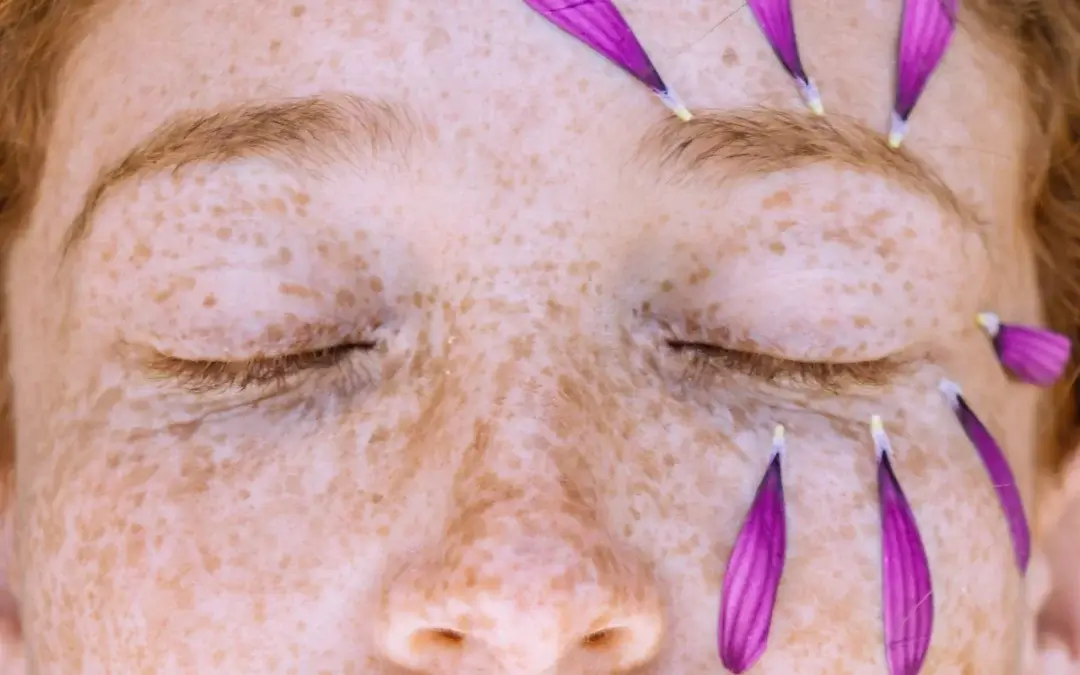
by Mia Barnes
 Fragrances are in almost everything, including your skincare. Even if you opt for unscented items, that doesn’t necessarily mean they’re without scents. Does that mean you need to opt out of nice-smelling products? The answer may vary depending on how sensitive your skin is and how interested you are in finding natural scents over synthetic ones.
Fragrances are in almost everything, including your skincare. Even if you opt for unscented items, that doesn’t necessarily mean they’re without scents. Does that mean you need to opt out of nice-smelling products? The answer may vary depending on how sensitive your skin is and how interested you are in finding natural scents over synthetic ones.
What Does Fragrance Do?
Fragrance makes things smell nice and in some cases, it can neutralize ingredients that smell bad, so you’ll be more likely to use a product. Even some skincare is scented, whether naturally or artificially.
Forty-one percent of women in America use fragrances daily in some form, making it a huge market many people can’t see themselves living without. Some people even have signature scents that make you think of them. Others might opt for unscented products, believing they are the same as fragrance-free items.
There’s a major difference between the two terms you should know before your next purchase:
- Unscented means the product contains ingredients that neutralize the smell of other elements so it has no fragrance.
- Fragrance-free means there are no natural or synthetic fragrance materials in the product.
Why would someone opt for fragrance-free skincare, even over naturally scented products? They might have allergies to scents or have a skin reaction to the fragrances, whether synthetic or natural. Some sensitive skin might not be able to handle essential oils — another product made with natural fragrances.
The Science Behind Fragrance-Related Reactions
Unfortunately, not all fragrances are harmless for every person. Sometimes, even natural fragrances might make a person unwell. Synthetic fragrances are often the cause of contact dermatitis, which results in a painful rash or swollen hives in the area affected by the product. You can avoid future flare-ups by removing fragrances from your life. Try to pinpoint the cause of your contact dermatitis first — it could always be something else, like nickel.
Because many personal care products feature endocrine disruptors that can harm your health, you should learn the ingredients in your personal care products. Look out for potentially harmful components no matter what you use — especially in skincare and hair care products. Endocrine disruptions are known to mess with reproductive health and increase cancer risk.
Since synthetic fragrances could be harmful, you may opt for natural fragrances only. Certain flowers give off a lovely, natural scent you can smell all year long, like roses or lilies. You could even make your own perfume out of flowers from your garden using their petals and some water.
You can use certain essential oil scents to affect your mood, like how citrus can make you happier when you feel down. You have to find the right balance of fragrances that work for you. Before using essential oils, research the scent and whether it can be toxic to any four-legged family members.
Make the Choice That’s Right for You
Some people may rely on fragrance-free skincare, while others might like the scent of their favorite creams and body washes. It’s up to each individual to decide whether fragrance-free skincare is best for them, but you should also try both and see which affects you the least. You might be surprised at what you find out.
Cover Photo by Chermiti Mohamed
Insert Photo by Min An







by Mia Barnes
How to Improve Blood Circulation for Healthy Glowing Skin
 Every organ needs continual blood flow to function. You might not think of your skin as an organ, but it is. If your veins struggle to transport blood, you could experience symptoms like dry skin, a paler countenance, or rashes. Use these tips to improve your blood circulation and enjoy healthy skin that glows.
Every organ needs continual blood flow to function. You might not think of your skin as an organ, but it is. If your veins struggle to transport blood, you could experience symptoms like dry skin, a paler countenance, or rashes. Use these tips to improve your blood circulation and enjoy healthy skin that glows.
1. Exercise More Often
When you need to jog a short distance, you likely experience a flushed face and shortness of breath. The movement forces your heart to pump faster and send more blood through your veins.
Exercising regularly improves blood flow by strengthening the heart muscles that operate every minute of the day. If you do light to moderate cardio exercises, your heart will pump blood more easily when resting. Your body will function more efficiently, including your skin.
2. Give Yourself Massages
The lymphatic system clears toxins from the body by draining waste from your cells. It may not do this as efficiently when you have poor circulation, though. Massaging your skin stimulates the lymphatic system, like recharging a battery.
Give yourself daily massages or visit the spa frequently to engage this natural system that results in glowing skin.
3. Drink More Water
Iced coffee and bubbly sodas taste great, but they don’t do much for your skin’s health. Even though both have water, they aren’t as hydrating as water by itself. Drinking more water hydrates your body, allowing thinner blood to travel through veins more easily than when you drink mostly sodas, coffee, or other beverages.
Consider carrying a water bottle throughout your day so it’s always accessible, and you may notice your skin improving within days.
4. Quit Any Smoking Habits
Smoking introduces chemicals directly into your bloodstream. The toxic mix from cigarettes contains over 7,000 chemicals that pollute your blood after transferring through your lungs. The blood then carries less oxygen to your organs, leading to vessel and heart damage.
You might think vaping is a better option, but recent research proves otherwise. When researchers studied participants who smoked nicotine-free e-cigarettes, they noted a 17.5% blood flow reduction due to the chemicals affecting blood vessel lining.
Instead of smoking to reduce your anxiety, you could eat healthier foods to support your brain health and maintain improved mental wellness. Other stress-relieving habits like exercising, journaling, and meditating could supplement your new routine so you experience healthier skin and inner peace.
5. Get More Omega-3s
Fatty acids, also known as omega-3s, are great for your blood circulation in moderation. They come from foods like salmon, tuna, some seeds, and canola oil. When you ingest it, the fatty acids lower your blood pressure, among other health benefits. Lower blood pressure allows your arteries to open more easily, promoting better circulation.
Talk with your doctor if you believe adding omega-3s to your diet could help your skin. They’ll know how to balance it with your medical history if it’s a sustainable option for your health.
Achieve Healthier, Glowing Skin
Moisturizing and washing your face aren’t the only ways to achieve better skin. You can also improve your blood circulation with these tips. You may find that you have a healthier, more glowing appearance by making these slight adjustments to your daily routine.
Inset photo by Mateus Souza
Cover Photo by Nathan Cowley







by Mia Barnes
Organs couldn’t function without each other, and your skin is no different. It relies on your entire wellness to thrive, but many people don’t realize how essential it is to have a comprehensive skincare routine. Read more about the importance your liver has on your skin’s health to better understand how to improve and maintain your appearance.
1. It Processes Everything
Your liver’s primary function is to remove toxins in your blood and process them into bile. Afterward, the blood that exits your liver is clean and ready to support your health.
Your liver also regulates your thyroid hormone production, which can clear your skin or cause breakouts. Although you might not always think of your skin as an organ, it’s intricately connected with your liver.
Everything you eat and drink contains nutrients, ingredients, and chemicals that will pass through your liver. When it can’t process everything, the rest of your body doesn’t function properly because your bloodstream is polluted. Having less-clean blood and oxygen means you’ll have poorly performing skin cells.
You can easily support your liver and skin health by drinking more water. Beverages with water and no added ingredients are easiest on your liver because they provide liquid with little need for processing. You’ll flush toxins out and prevent them from affecting your skin.
2. It Banishes Toxins
As toxins build up in your bloodstream, your body will expel them in other ways if your liver can’t handle them. That includes processing the toxins through your sweat glands. The sweat will be more toxic than usual, leading to skin irritations and potential acne.
Revamping your diet is an excellent way to strengthen your liver. Try adding more whole foods free of processed ingredients and you’ll have an anti-inflammatory diet. This type of diet typically includes many foods high in antioxidants, which may reverse liver damage caused by poor diets.
Every unhealthy food you swap with fruits, veggies, or another healthy alternative will support your skin health. Look for options that lack artificial ingredients or sweeteners to get started. A nutritionist can always assist with your dietary needs while you’re figuring out what works with your lifestyle.
3. It Breaks Down Fats
You might not think of fat as a toxin, but it’s another nutrient your liver expertly breaks down. It comes from foods and drinks, so your body will have more of it on some days than others. When your liver is too inefficient, the fat remains in your bloodstream. Sebaceous glands will try to expel the fats to clear your bloodstream, which often results in more oily skin and clogged pores.
While protecting your pores by ingesting better foods and drinks, you should also protect them from outside factors. Applying sunscreen each morning is an excellent way to shield yourself from ultraviolet (UV) rays, even on cloudy days. When inner or outer factors don’t damage your cells, your skin will thrive.
4. Revitalize Your Skincare Routine
Your liver health directly affects your skin, so take control of your health and appearance with these tips. They’re easy to work into any routine, even if you’re always busy. Eating healthier and drinking more water could be the secret to the gorgeous skin you’ve been working to achieve.
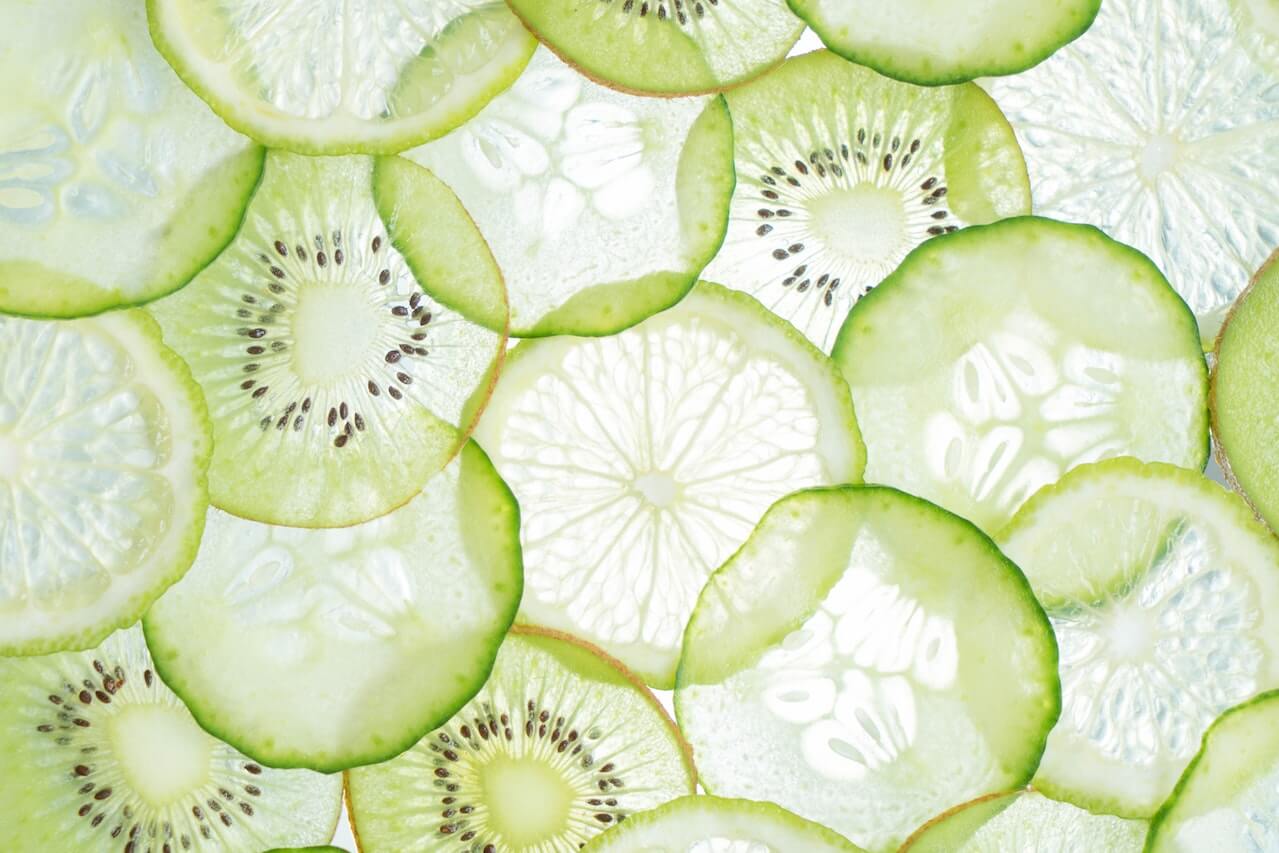
Cover Photo by Guilherme Almeida
Insert photo by Badulescu Badulescu






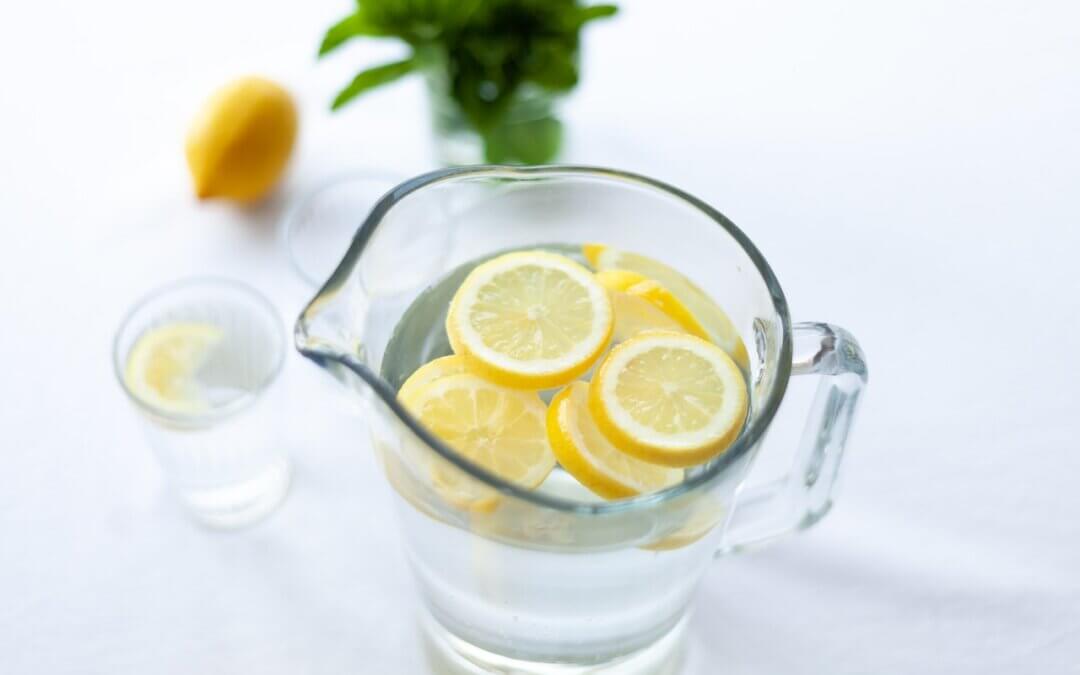
by Mia Barnes
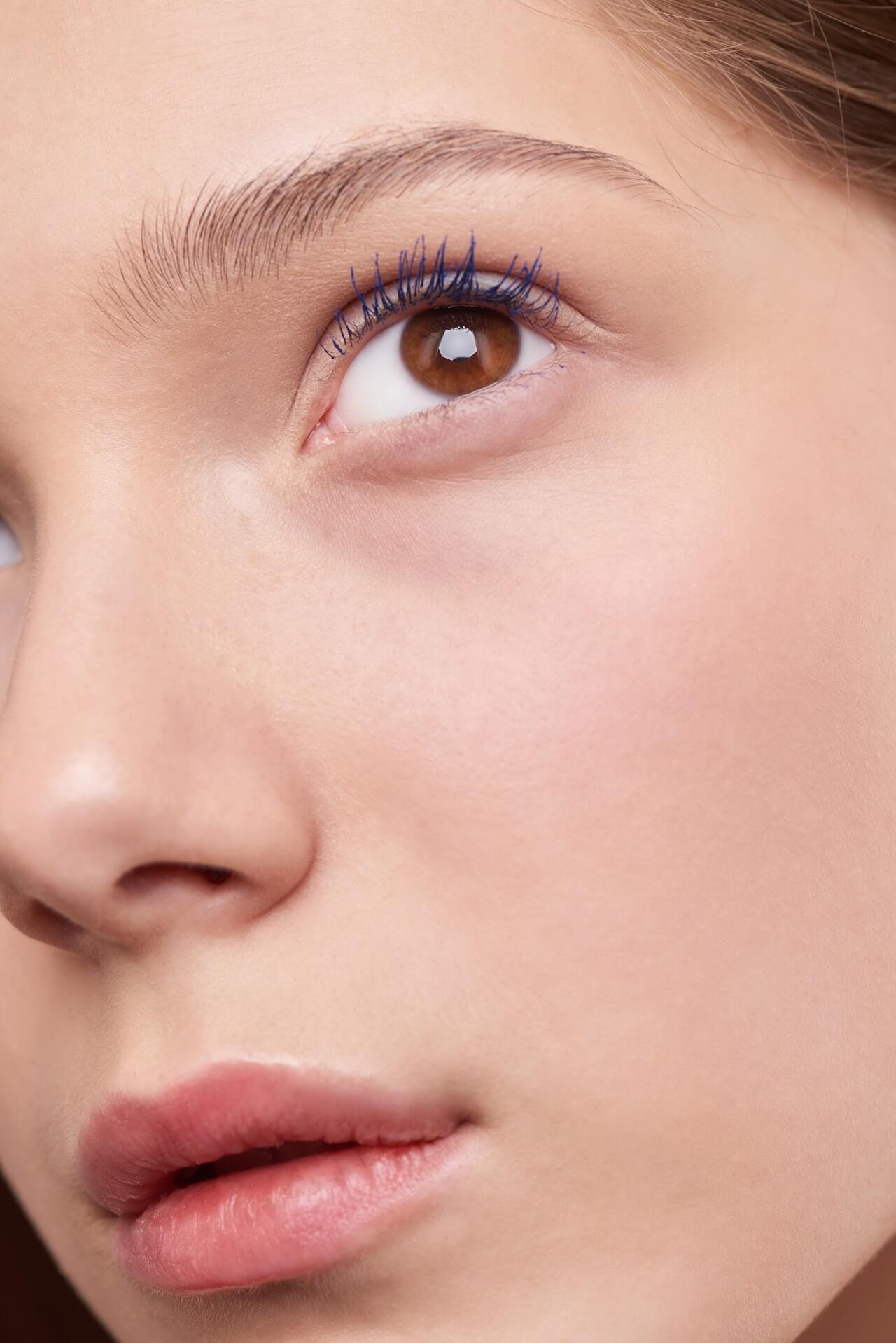 Whether you have a dry skin type frequently or it’s a new development as the seasons change, keeping your skin moisturized can save you a lot of irritation while improving confidence in your appearance. Fortunately, there are dozens of remedies to treat dry skin, and most of them require little change to your normal regimen.
Whether you have a dry skin type frequently or it’s a new development as the seasons change, keeping your skin moisturized can save you a lot of irritation while improving confidence in your appearance. Fortunately, there are dozens of remedies to treat dry skin, and most of them require little change to your normal regimen.
Before you head to your dermatologist or the skin care section of your local drugstore, let’s take a look at some of the best ways to naturally attract and retain moisture in your skin.
1. Drink More Water
Our first tip is the most obvious — keep your moisture levels up by increasing your water intake. Most people don’t drink enough water throughout their day, and your skin may be paying for it. If you want to decrease your risk of dehydration:
- Find a good water bottle: Keeping a water bottle on hand ensures you can sip on it any time you feel thirsty. Find a reusable bottle you love and decorate it so you never want it to leave your side.
- Make your water fun to drink: Don’t like drinking normal water? Any water is better than none. Try drinking more sparkling water or water infused with fruit to add extra flavor.
- Cut your caffeine intake: Caffeine can dehydrate you. If you drink a lot of coffee or other high-caffeine drinks, you may be lowering the moisture levels in your body, even if you drink enough water. Try substituting coffee with herbal and low-caffeine teas.
2. Use Moisturizers and Sunscreen
If you think about your skin’s moisture, you likely already use a moisturizer regularly. But what about sunscreen? When applied after moisturizer, sunscreen creates a barrier that retains water inside and prevents UV rays from damaging skin and further affecting your natural moisture barrier.
Follow these moisturizer and sunscreen tips:
- Apply directly after bathing: Swimming, showering, washing your hands and other water-based activities deliver moisture right to your skin. Make sure it stays there by applying your skin care products as soon as possible after you’re finished.
- Reapply often: Sunscreen in particular has a limited life span. If you’re going to be outside for a while, reapply it every two hours or more often if you’re swimming.
- Look for humectants, sealants and emollients: When deciding which sunscreen and moisturizers to use, look for ones with humectants, which attract moisture, sealants to keep moisture close to the skin, and emollients that fill the space between skin cells to prevent water from escaping.
3. Eat More Seafood
Lobster, sardines, oysters and other delicious tastes of the sea — a decadent, tropical meal can be more than a good time for your mouth. Seafood is high in omega-3 fatty acids, which can give your skin that radiant glow you love while protecting it from free radicals, like UV rays and smog. It’s also a good source of fish oil, which can prevent or ease acne breakouts.
Certain types of seafood are high in other minerals, too. Salmon is packed with vitamin A, while tuna can boost your vitamin D levels. These nutrients improve wellness from the inside out, enhancing bodily functions for all organs, skin included.
4. Avoid Dry Air and Irritants
Sometimes, the reason your skin is dry may have more to do with your environment than your skin type. If your moisturizing measures aren’t working as well as you’d hoped, it may be time to consider external factors.
First, equip your home and workspace with a humidifier. Humidifiers give your skin a constant boost of quality air to fortify its barriers. Then, explore whether you may be unknowingly exposing yourself to other irritants.
Irritants can range from uncomfortable textures to personal allergens. Common irritants include fragrance products, wool and textured fabrics, soaps, detergents and plants.
Start Experimenting Today
As you can see, there are several methods for moisturizing your skin and bettering that natural glow. Try them one by one to discover which works best, or incorporate them all into your daily routine to experience better wellness overall.
Cover Photo by Shiny Diamond:
Insert Photo by Julia Zolotova:







by Mia Barnes
4 Tips to Protect Your Skin in the Spring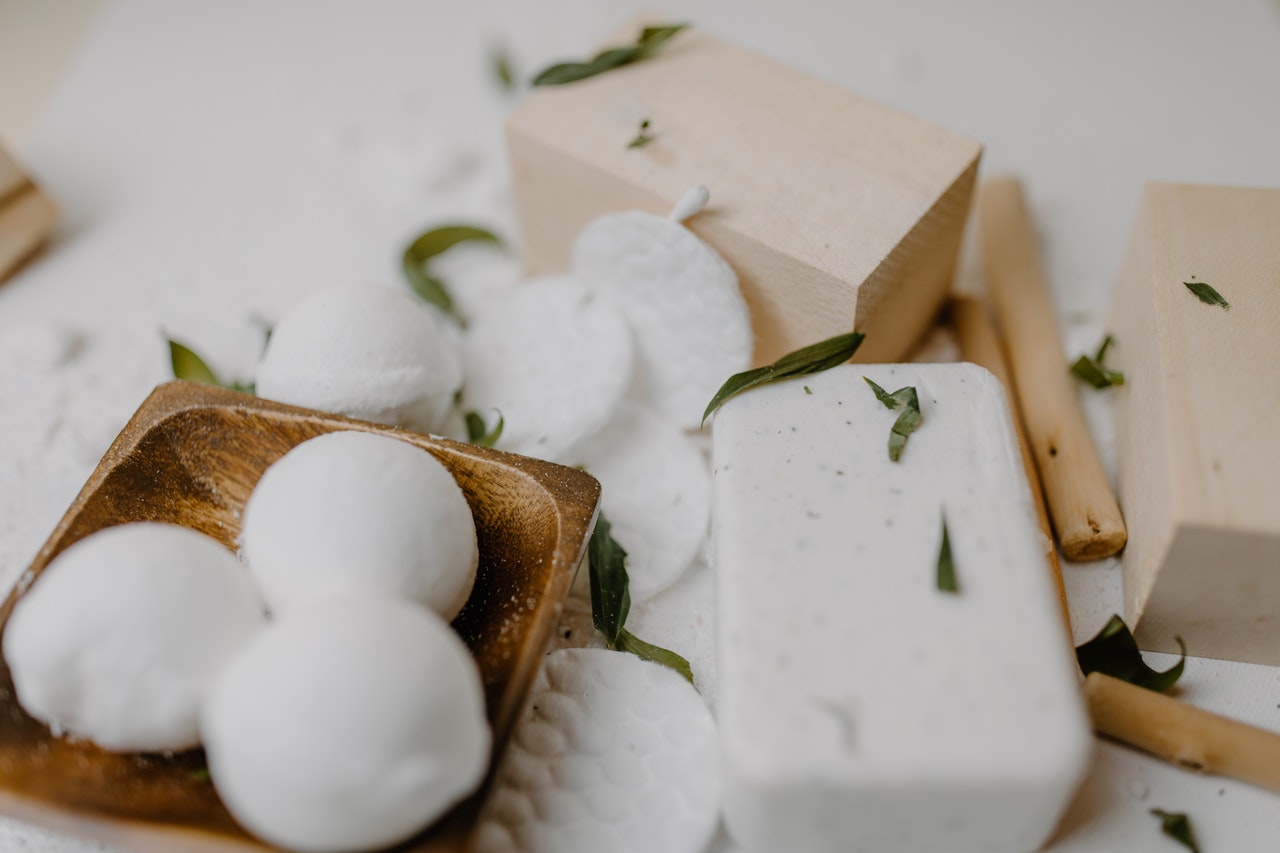
Did you know that your skin care routine should change with the seasons? As harsh winter weather subsides and spring approaches, sunlight, warmer temperatures and humidity will dramatically affect your skin. Here’s how to protect it so you’re ready to welcome brighter days, whatever they may bring.
1. Look for Lighter Formulas
Frosty winds and freezing temperatures can do a number on your skin, especially your hands and face. Whether you spend most of your time indoors or often brave the biting cold, dryness, flaking, itching, cracking and scaly skin can happen to anyone.
That’s why so many people use heavy creams and moisturizers during the winter. Your skin is typically oilier in the spring, which means you can get away with using lighter formulas. You might even use ones that purposely dry out your skin to fight acne, improve skin tone and minimize fine lines.
2. Use Exfoliating Scrubs
Dry indoor heat and heavy moisturizers can leave skin patchy and dull. When brighter days are in the forecast, it’s time to revitalize and restore its warm glow. Slough off dead skin with an exfoliating scrub. Avoid plastic microbeads and opt for natural ones with granulated pumice, Epsom salt and even coffee grounds.
You can even make your own with ingredients you have at home. Use your hands to apply scrubs to your face and a loofah to exfoliate the rest of your body. Gently massage your skin to improve circulation and bring some color to your cheeks.
3. Add a Layer of SPF
Exposure to the sun’s ultraviolet rays is responsible for 86%-90% of skin cancers. That’s why it’s so important to protect your skin, even in the springtime. Save yourself the trouble of burns, blisters and sun spots by layering on broad-spectrum sunscreen before heading out the door.
Apply products with an SPF of 15 to 30 for the face and 30 to 50 for the rest of your body. Pick moisturizing ones that block UV rays while nourishing your skin.
4. Cover up Outdoors
Are you sensitive to chemical sunscreens? What you need is a wardrobe update. Add jackets, shawls and wide-brimmed hats to your repertoire and protect your skin from harmful UV rays.
Many outdoor companies also carry clothing that promotes an ultraviolet protection factor. These stylish yet effective garments block ultraviolet-A and ultraviolet-B rays, just like broad-spectrum sunscreens. Stock up on these wardrobe staples before spring arrives to keep your skin safe.
Knowing Your Skin Type
Your skin care regimen might differ from your friends’. In fact, it probably should. Everyone has a different skin type that reacts to each season in its own way. Whether yours is dry, oily or somewhere in between, there’s a product and regimen that’s right for you.
It might take some trial and error, but once you understand the skin you’re in, purchasing products that are tailored to your skin type and goals should be a breeze. Stick with what works and keep an eye on the weather. You never know when you might have to switch things up again.
Cover Photo by Olya Kobruseva from Pexels
Inside Photo by Tara Winstead from Pexels






by Mia Barnes
Taking vitamins and nutrients can keep your skin looking beautiful. You probably have multiple steps to your skincare routine, so why not add one more? Incorporate these essential vitamins and nutrients into your daily regime.
7 Most Important Vitamins and Nutrients for Healthy Skin
Having healthy skin makes you look and feel good. Washing your face regularly is one way to maintain clear skin, but vitamins are also useful. Here are 7 essential vitamins and nutrients to add to your skincare routine.
- Vitamin D
Vitamin D is produced when your skin absorbs sunlight. That’s why it’s important to get outside at least once a day. Vitamin D can help with skin cell growth and repair and improve your metabolism. It can increase your skin’s immune system and reduce inflammation.
There are products containing this vitamin that help with psoriasis. To get Vitamin D naturally, eat foods containing this vitamin, such as salmon or tuna fish. Try to get at least 600 IU’s of Vitamin D daily.
- Vitamin C
This vitamin is found in the outer and inner layers of your skin. It produces collagen which plays a role in skin elasticity. Vitamin C also decreases cell damage, heals wounds, and prevents wrinkles.
Plus, it can lighten your skin and make it appear more radiant. To get Vitamin C you can find over-the-counter products and dietary supplements. Another idea is eating citrus or plant-based foods, such as oranges or strawberries.
- Vitamin E
This antioxidant helps to protect against sun damage by absorbing harmful UV light. This then prevents dark spots and wrinkles. Vitamin E is produced through an oily substance emitted by your skin’s pores. This substance keeps your skin conditioned reducing dryness. You want to get at least 15 mg a day of Vitamin E.
You can do this by taking supplements or using a topical cream. If you take any medications, talk doctor about drug interactions. For example, Vitamin E may interfere with some cholesterol-lowering medications.
- Vitamin K
Vitamin K helps aid in the process of blood clotting. They can also help with certain skin conditions, such as stretch marks, spider veins or dark spots. This vitamin can be found in multiple topical creams, including Aroma Naturals products. Doctors use these creams for people undergoing surgery to reduce swelling and bruising. Along with medication, you can eat foods rich in Vitamin K, like kale or spinach.
- Protein
The protein you eat turns into amino acids which are the building blocks for your cells. They’re also used to make important proteins, such as collagen, which form the structure of your skin. Some amino acids protect your skin against UV rays or heal and repair damaged tissue.
To get more protein, consider eating more meat, such as beef or chicken. You can also make simple swaps such as eggs or yogurt for cereal. Another tip is to include a source of protein with every meal.
Here is some food containing protein to add to your plate:
- Lean meats
- Fish
- Seeds and nuts
- Dairy
- Beans and lentils
- Vitamin A
Vitamin A prevents sun damage by interrupting the process of collagen breakdown. It may also protect you from sunburn, help your oil glands, and heal scrapes and cuts. The recommended daily intake of Vitamin A is 900 mcg RAE for men and 700 mcg RAE for women. To increase your daily intake, take supplements or eat leafy green vegetables.
- Calcium
Calcium can strengthen your bones and prevent serious injury. It can even rejuvenate your skin, by regulating cell turnover. Calcium improves your skin’s barrier by keeping out pathogens and locking in moisture. So, if you have dry skin, this nutrient is beneficial.
You need at least 1,000 mg of calcium per day. One easy way to obtain this goal is by drinking milk. You can also eat other dairy products, such as cheese and yogurt. Another idea is taking dietary supplements, like calcium carbonate or calcium citrate. Keep in mind calcium carbonate should be taken with food.






by Mia Barnes
There are so many ways that you can improve your skin and your skin care, from the inside out. Whether you have a great routine in place already or you’re simply curious about what other aspects of your lifestyle can benefit your beauty routine, you might be surprised to learn that probiotics can be fantastic for the skin. Even though probiotics are available in topical form, you can find plenty of fantastic probiotics to take orally that can benefit your entire body, in addition to your skin.
Here are some of the benefits that you might find when you take probiotics.
Improving Your Moisture Barrier
Your moisture barrier is one of the most important things when it comes to protecting your skin from damage, debris, and everything outside of your skin’s ecosystem. Not only does the moisture barrier offer protection, but it also helps to keep the skin hydrated by preventing transepidermal water loss.
By taking probiotics or even applying certain probiotic serums and extracts topically, you can strengthen the moisture barrier for better protection.
Balancing the Good Bacteria
Just like any other part of your body, your skin has the ability to balance good and bad bacteria in order to create the best environment for your face. Probiotics introduce bacteria into your system, but instead of harmful bacteria, it’s good bacteria. This can offer protection and improve your skin’s appearance and even the health of your skin.
Improving Eczema
By offering a bit of extra protection and balance, probiotics have shown the ability to reduce the severity of allergies and eczema. Although it’s obviously different for everybody, you can try taking or applying different forms of probiotics to see which ones work for you in conjunction with your usual allergy and eczema treatments.
Clearing Acne
As a result of offering a bit of extra protection and by balancing some of the good and bad bacteria, probiotics have the power to reduce skin sensitivity and irritation. Specifically, those who have especially dry or oily skin can benefit a lot from taking probiotics, as they can help to bring a little bit more balance to the moisture, which helps clear acne, discoloration, and other skin concerns.
Soothing
Although this one can go hand-in-hand with acne, it can also be true for many other skin concerns. If you tend to experience a lot of irritation and sensitivity, taking probiotics can be extremely soothing to the skin. Probiotics can help to reduce inflammation, acne, and even rosacea, all of which tend to come in cycles or as a part of a pattern.
Improving Gut Health
At the root of all of this, one of the most important things to consider is the benefit that probiotics bring to your gut health, and therefore your skin. Even though your gut health might seem unrelated to your appearance, there is actually a very strong connection between your gut health and the health of the rest of your body, which includes your skin. When you improve your gut health, you make the space for the rest of your body to balance in accordance with it.
Probiotics and the Skin
There are plenty of reasons to take probiotics, and improving the health of your skin is just one of them. By taking probiotics, you can improve your gut health, reduce inflammation, and introduce plenty of other benefits into the body’s systems, which happen to all be connected. From protecting the moisture barrier to clearing up acne and eczema, there are so many reasons why you might want to look into taking a probiotic for the health of your skin. Do you already take a probiotic, or are you simply looking into it?
Photo by Cats Coming from Pexels
Cover Photo by Shiny Diamond from Pexels







by Mia Barnes
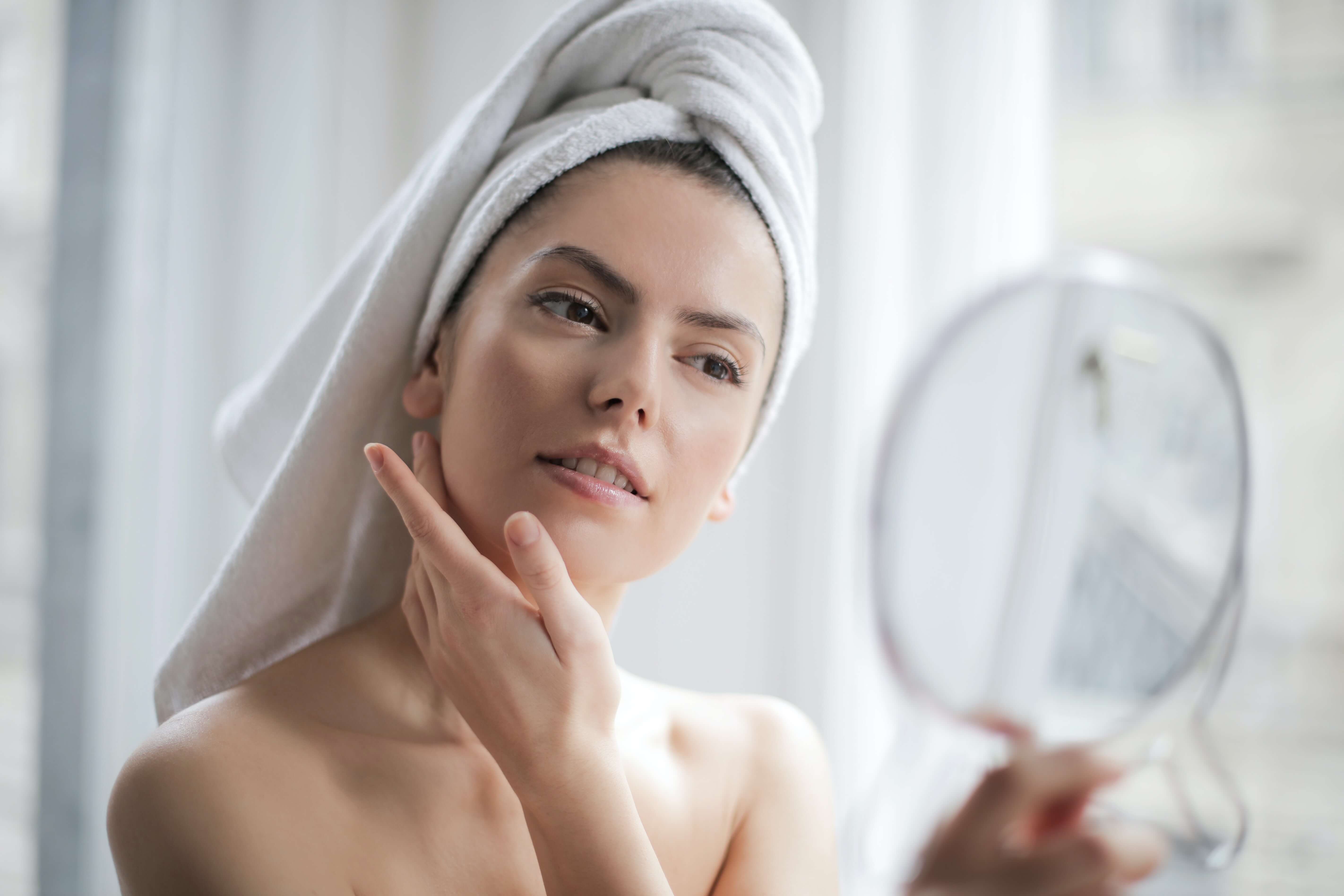
You may remember talking about the various layers of the skin in biology class, but how does that apply to taking care of your own face in your beauty routine? Taking care of your skin means going deeper, and taking care of all the layers beneath. Depending upon which source you consult, most people consider the human skin to have between seven and eight layers. Although certain skincare practices Are purely surface level, there is so much more that you can do to take care of the whole of your skin. Here are a few things that you can do to make sure that you’re taking care of the different layers of your skin.
Use Chemical Exfoliators
Although chemical exfoliators might sound a bit harsher than physical exfoliators, the truth is actually the opposite. Most products can only penetrate the uppermost layers of the epidermis, as the skin’s natural barriers are designed to keep harsh and abrasive particles out. When you use scrubs and washes with beads, you can cause breakage and damage that ultimately harms the skin. Instead, go for a chemical exfoliator.
Always Moisturize
Speaking of protecting your skin’s natural barriers, moisturizing is always important, no matter what skin type you have. By using a moisturizer at the end of your skincare routine, you can offer a bit of extra protection by locking in moisture and preventing transepidermal water loss from taking place.
Avoid Alcohol In Your Skincare Products
Although it can sometimes feel satisfying to use products that contain alcohol — think of that clean, refreshing feeling that many toners and witch hazel products can leave on your skin — alcohol can actually throw your skin’s layers completely out of balance. Specifically, alcohol can strip your skin of the natural oils that it needs for protection and hydration, drying out the epidermis and causing damage to your skin over time with repeated use.
Try a Deep Mask
Just because you don’t want to cause deep damage doesn’t mean you can never go deep with your skincare treatments. In fact, there are plenty of times that going a little beneath the surface is important. In the case of things like blackheads, using masks and products that are intended to go deeper into the epidermis can help fish out excess debris and sebum that you can’t get from traditional products. Ingredients like clay and activated charcoal can be fantastic for this.
Head to a Professional
At the end of the day, the only person that is specifically qualified to go deeper into your skin on a consistent and regular basis is a skincare professional. Whether you schedule regular visits to the dermatologist to plan out your skincare regimen or you book a bi-monthly facial with your favorite aesthetician, putting your face in the hands of a professional is a great way to cover all your bases.
Taking Care of Your Skin, Top to Bottom
There are so many ways that you can take care of your skin from the top to the bottom. By avoiding harsh products and chemicals, moisturizing regularly and going to a professional when you can, you can make sure that your skin is always at its best, even in the places you can’t see.
Photo by Andrea Piacquadio from Pexels
Cover Photo by nappy from Pexels












 When thinking about the impact of poor air quality, people often focus on the risks it can cause to the respiratory system without realizing it can also affect the skin.
When thinking about the impact of poor air quality, people often focus on the risks it can cause to the respiratory system without realizing it can also affect the skin.


 Fragrances are in almost everything, including your skincare. Even if you opt for unscented items, that doesn’t necessarily mean they’re without scents. Does that mean you need to opt out of nice-smelling products? The answer may vary depending on how sensitive your skin is and how interested you are in finding natural scents over synthetic ones.
Fragrances are in almost everything, including your skincare. Even if you opt for unscented items, that doesn’t necessarily mean they’re without scents. Does that mean you need to opt out of nice-smelling products? The answer may vary depending on how sensitive your skin is and how interested you are in finding natural scents over synthetic ones.
 Every organ needs continual blood flow to function. You might not think of your skin as an organ, but it is. If your veins struggle to transport blood, you could experience symptoms like dry skin, a paler countenance, or rashes. Use these tips to improve your blood circulation and enjoy healthy skin that glows.
Every organ needs continual blood flow to function. You might not think of your skin as an organ, but it is. If your veins struggle to transport blood, you could experience symptoms like dry skin, a paler countenance, or rashes. Use these tips to improve your blood circulation and enjoy healthy skin that glows.


 Whether you have a dry skin type frequently or it’s a new development as the seasons change, keeping your skin moisturized can save you a lot of irritation while improving confidence in your appearance. Fortunately, there are dozens of remedies to
Whether you have a dry skin type frequently or it’s a new development as the seasons change, keeping your skin moisturized can save you a lot of irritation while improving confidence in your appearance. Fortunately, there are dozens of remedies to 



